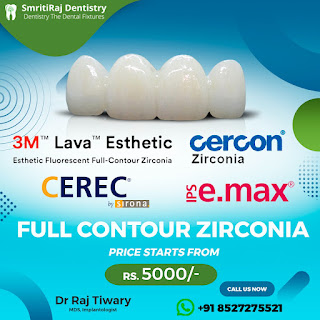How do I take care of an oral health post-dental implant?
Taking proper care of your oral health after getting a dental implant is essential for ensuring its longevity and preventing complications. Here’s a comprehensive guide on how to take care of your oral health post-dental implant to ensure successful healing and maintenance:
1. Follow Your Dentist’s Instructions
Immediately after the dental implant procedure, your dentist will provide detailed instructions on how to care for your new implant. This will likely include recommendations for pain management, diet, and oral hygiene. Be sure to follow these guidelines carefully.
2. Maintain a Gentle Oral Hygiene Routine
For the first few days after your dental implant surgery, it’s crucial to keep your mouth clean without irritating the surgical area. Use a soft-bristled toothbrush and avoid brushing the implant site directly. You can gently clean your teeth with a soft brush and rinse with an antiseptic mouthwash recommended by your dentist. After a few days, you can gradually return to your regular brushing routine.
3. Avoid Hard or Sticky Foods
For the first few weeks after surgery, avoid eating hard, crunchy, or sticky foods that could potentially damage the implant or disturb the healing process. Opt for softer foods like soups, mashed potatoes, and yogurt. As healing progresses, you can gradually reintroduce your regular diet.
4. Manage Pain and Swelling
It’s common to experience some swelling or discomfort after dental implant surgery. Over-the-counter pain relievers such as ibuprofen or acetaminophen can help manage discomfort. Applying a cold compress to the outside of your mouth for the first 48 hours can also reduce swelling. If the pain or swelling persists, be sure to contact your dentist.
5. Avoid Smoking and Alcohol
Smoking and alcohol can hinder the healing process and increase the risk of implant failure. It’s best to avoid smoking for at least a few weeks after the procedure. Alcohol can interfere with your body's ability to heal, so limiting its consumption is advisable during the recovery phase.
6. Regular Follow-Up Appointments
Your dentist will schedule follow-up appointments to monitor the healing of the dental implant treatment and ensure there are no issues. Attending these appointments is crucial for ensuring the success of your implant and addressing any concerns early on.
7. Use Antibacterial Mouthwash
In the initial weeks after your procedure, using an antibacterial mouthwash can help prevent infection around the implant site. Make sure to use a mouthwash recommended by your dentist, as it will be gentle and effective without irritating the surgical area.
8. Be Patient – Full Healing Takes Time
While the initial healing period usually lasts around a week, the full integration of the implant with the jawbone (osseointegration) can take several months. It’s important to be patient and continue with good oral hygiene and follow-up care to ensure the best possible outcome.
9. Keep an Eye on Changes in Your Implant Area
Regularly check the implant area for any signs of infection, such as increased swelling, redness, or pus. If you experience any unusual discomfort or symptoms, contact your dentist immediately. Early intervention is key to resolving any issues quickly.
10. Maintaining Long-Term Implant Care
Even after your dental implant has fully healed, it’s important to maintain good oral hygiene practices to ensure the implant’s long-term success. Continue brushing twice daily, flossing, and using mouthwash regularly. Avoiding grinding your teeth or using the implant site to bite hard objects will also help preserve the integrity of the implant.
Conclusion
Proper post-surgery care is essential for the long-term success of your dental implant. By following these steps and maintaining regular visits to your dentist in delhi, you’ll ensure that your new implant functions well and provides you with a healthy, beautiful smile for years to come.
For more personalized advice, always consult your dental provider to address your unique needs and situation.


Comments
Post a Comment